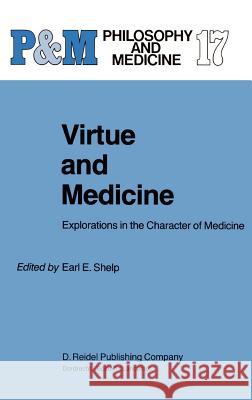Virtue and Medicine: Explorations in the Character of Medicine » książka
Virtue and Medicine: Explorations in the Character of Medicine
ISBN-13: 9789027718082 / Angielski / Twarda / 1985 / 364 str.
Interest in theories of virtue and the place of virtues in the moral life con- tinues to grow. Nicolai Hartmann [7], George F. Thomas [20], G. E. M. Anscombe [1], and G. H. von Wright [21], for example, called to our atten- tion decades ago that virtue had become a neglected topic in modem ethics. The challenge implicit in these sorts of reminders to rediscover the contribu- tion that the notion of virtue can make to moral reasoning, moral character, and moral judgment has not gone unattended. Arthur Dyck [3] , P. T. Geach [5], Josef Pieper (16], David Hamed [6], and, most notably, Stanley Hauerwas [8-11], in the theological community, have analyzed or utilized in their work virtue-based theories of morality. Philosophical probings have come from Lawrance Becker [2], Philippa Foot [4], Edmund Pincoffs [17], James Wallace [22], and most notably, Alasdair MacIntyre [12-14]. Draw- ing upon and revising mainly ancient and medieval sources, these and other commentators have ignited what appears to be the beginning of a sustained examination of virtue.











